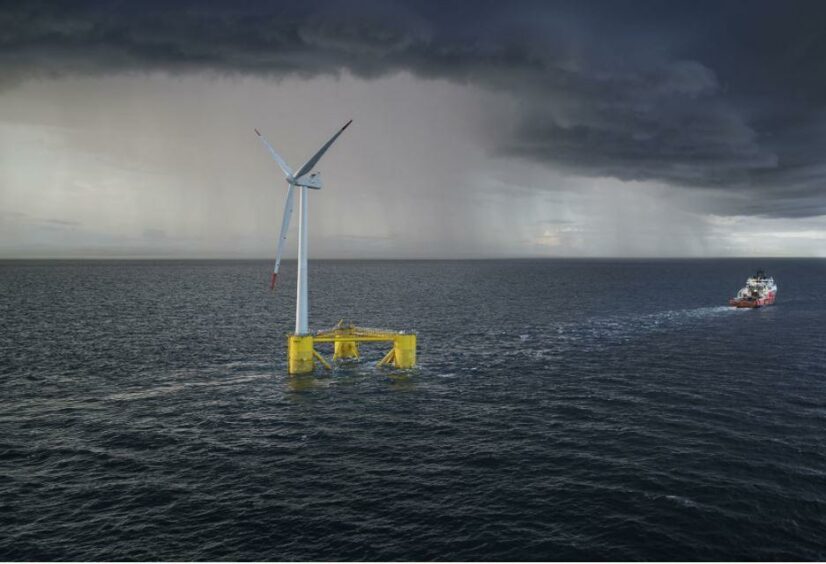
Five areas in the sea off Cornwall and Wales have been mapped out for the development of floating offshore wind schemes, the Crown Estate said.
The organisation has identified five broad “areas of search” for developing the innovative technology, which can be deployed in deeper water with higher wind than conventional offshore wind farms, to support efforts to tackle climate change.
The areas are in the Celtic Sea, which the Crown Estate said was rich in natural resources including wind, and have been identified following technical analysis and engagement.
They will be refined into small project development areas within which the first generation of commercial-scale floating windfarms could be built, which will be open for competitive tender in mid 2023.
The plan is that these areas will deliver four gigawatts of floating offshore wind power by 2035 – providing power to almost four million homes.
Research commissioned by the Crown Estate suggests a further 20 gigawatts of floating offshore wind capacity could be established in the Celtic Sea by 2045.
The areas take account of navigation routes, fishing activity and environmental issues, the Crown Estate said.
Huub den Rooijen, managing director marine at the Crown Estate, said: “The Celtic Sea has the potential to become one of the great renewable energy basins of the world, bringing economic growth and abundant clean power.
“This leasing round is a first step, and we need to work together to bring technology costs down, deliver environmentally sound solutions and respect the needs of the many other users of the marine space.”
Greg Hands, energy and climate change minister, said: “We already have the largest offshore wind deployment in Europe. Floating technology is key to unlocking the full potential of our coastline.
“We want to deliver up to 5GW of floating offshore wind by 2030. These projects can help power millions of homes with clean, and cheaper, renewable energy, reducing reliance on expensive fossil fuels.”
Recommended for you
